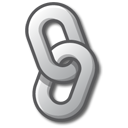Timeline
|
Events
/ Historic Developments
|
More material page or extra link
|
Area
|
1503
|
The village called Argameols,
that was located on the coastland, near the now Formby Point, disappears, probably during very violent storms, which are a big problem on the coast at this time. |
|
1538
|
Dissolution of smaller monasteries by Henry the VIII, soon after having his wife Anne Boleyn executed. |
|
1547
|
Henry the VIII dies. |
1558
|
Elizabeth I becomes Queen of England. |
1564
|
Shakespeare born. |
1575
|
 The former Country
Estate and ancestral home of the Molyneux family,
the Earls of Sefton was built and named Croxteth Hall. The Hall is now a Grade II*.
The site in by 2003 had 3 of the outbuildings; with
another 15 buildings on the estate that had also
been listed Grade II. The former Country
Estate and ancestral home of the Molyneux family,
the Earls of Sefton was built and named Croxteth Hall. The Hall is now a Grade II*.
The site in by 2003 had 3 of the outbuildings; with
another 15 buildings on the estate that had also
been listed Grade II. |
|
1577
|
Captain Francis
Drake starts
his voyage around the world. He was
the 1st Englishman to
sail
around the world.
|
|
1580
|
Francis Drake returns. |
1582
|
Gregorian Calendar introduced by Pope Gregory XIII |
1588
|
Spanish Armada. The Spanish plan to join with Parma's army and also
amassed an armada to attack the English. The fleet
was composed of 151 ships, 8,000 sailors and 18,000
soldiers, and bore 1,500 brass guns and 1,000 iron
guns. The English fleet consisted of the 34 ships of
the royal fleet (21 of which were galleons of 200 to
400 tons), and 163 other ships, 30 of which were of
200 to 400 tons and carried up to 42 guns each; 12
of these were privateers owned by Lord Howard of
Effingham, Sir John Hawkins and the now Sir Francis
Drake. The Armada suffered a decisive defeat and
accomplished nothing. |
1600
|
East India Company founded. |
1603
|
Accession of James the
VI of Scotland as James the I of England and the joining of the
2 crowns and forming most of the United Kindom. |
1605
|
 Gunpowder plot. Guy Fawkes,
also known as Guido Fawkes, was captured and
identified as the 1 who had planned the attempt to
assassinate James I, during the opening of
Parliament. He was arrested, at midnight on 4 November 1605, with 36 Gunpowder plot. Guy Fawkes,
also known as Guido Fawkes, was captured and
identified as the 1 who had planned the attempt to
assassinate James I, during the opening of
Parliament. He was arrested, at midnight on 4 November 1605, with 36
 barrels of gunpowder were
found stacked in the cellar directly beneath the House of Lords, where the King would have been
sitting the day after. ever since on 5 November,
every year in the England, the effigy of Guy Fawkes
is still burned on bonfires in recognition of his
capture. barrels of gunpowder were
found stacked in the cellar directly beneath the House of Lords, where the King would have been
sitting the day after. ever since on 5 November,
every year in the England, the effigy of Guy Fawkes
is still burned on bonfires in recognition of his
capture. |
1612
|
 Speke Hall finally finished or at least residents stopped upgrading it.
The Tudor manor house or hall was built by the
devout Catholic Norris family, using a wood-framed
wattle-and-daub. Speke Hall finally finished or at least residents stopped upgrading it.
The Tudor manor house or hall was built by the
devout Catholic Norris family, using a wood-framed
wattle-and-daub. |
|
1616
|
Death of Shakespeare. |
|
1630's
|
Hawslookers appointed by the Manors of Birkdale and Ainsdale to watch the dunes and bring before the courts anyone stealing Starr Grass (Marram). |
|
1683
|
The first lighthouse of the mouth of
the river Mersey was build this year on Perch Rock. |
1642
|
 King Charles I, attempts
to arrest Members of Parliament for high
treason. The MPs were Mr Holles, Mr Pym, Sir A
Haslerig, Mr Hampden and Mr William Strode. This marks the outbreak of the English Civil War.
The 1st general / major engagement was at Edgehill,
between Oxford and Warwick, between the
Roundheads (Parliamentarians) and the Cavaliers
(Royalists) King Charles I, attempts
to arrest Members of Parliament for high
treason. The MPs were Mr Holles, Mr Pym, Sir A
Haslerig, Mr Hampden and Mr William Strode. This marks the outbreak of the English Civil War.
The 1st general / major engagement was at Edgehill,
between Oxford and Warwick, between the
Roundheads (Parliamentarians) and the Cavaliers
(Royalists) |
|
1643
|
Liverpool is under siege by
King Charles' nephew and commander of the
Cavaliers,
Prince Rupert and lead to the taking of
Liverpool Castle. Other the next 2
years the ownership of the Castle changed sides many
times. |
|
|
Parliament institutes a new
state-controlled censoring apparatus in the
Licensing Order. This act leads to tighter control being imposed on
the press along with censorship publishers had to
have a pre-publication license, conduct a full
registration of all printing materials, along with
the names of author and printer. Also it allowed
arrest and imprisonment of any deemed by the English
monarchy as offensive writers, printers and
publishers. |
|
1644
|
The fighting for Liverpool Castle eventually ended when the Parliamentarians
decided to burn it down. The fire that
was set by them left
the building in ruins. |
|
1645
|
New Model Army formed, and main Royalist army crushed. |
|
1646
|
King Charles I surrenders to the Scots. |
1647
|
Charles the 1st handed over to parliament, he's seized by the army but manages to escape and runs to Carisbrooke Castle. |
1648
|
First import of Tobacco into Liverpool Docks from America
takes place. |
|
1648
|
2nd Civil War starts, New Model Army defeats Scots and Royalist forces. Army refashions parliament. |
|
1649
|
Charles I is executed. |
1649
|
The Puritan Oliver Cromwell outlawed
Christmas celebrations and carols in England. The
only celebrations allowed were sermons and prayers. |
1651
|
Oliver Cromwell's victory at Worchester, now King of England. |
1658
|
Oliver Cromwell dies. |
1660
|
Restoration of the Monarchy in England and the crowning of Charles
II. |
1660
|
The law banning Christmas
celebrations and carols in England is lifted. |
1665
|
Great Plague in London. The outbreak of the plague resulted in large numbers
fleeing the capital. |
1666
|
Great Fire of London
took a hold and devastated most of London and lead
to the displacement of many people, including
merchants and tradesmen. Many of
them moved to Liverpool, joining those who had left
London due to the risk of catching the plague. The
population of the once small fishing village of
Liverpool had risen to around 7000 people. Building
like the Bluecoat Chambers were built, as the money
from those forced out of London poured in to
Liverpool. |
|
|
1681
|
Charles II begins to rule without
Parliament. |
|
1688
|
William of Orange lands in England the start of the 'glorious revolution'. |
1690
|
Battle of Boyne defeat of James II by William III.
Also this year sees world's most dominant naval
power France delivers a crushing defeat on England's
Naval in the Battle of Beachy Head. |
1691
|
Capitulation of Irish Supporters of James II, on conditions which are not fulfilled. |
1693
|
National Debt of England begun. |
1694
|
 On the back of the
defeat of the Navy in the Battle of Beachy Head in
1690, a national bank was needed to mobilise the
Nation's resources, so in this year the Governor and
Company of the Bank of England was founded.
The Bank was given exclusive possession of the
government's balances, and was the only
limited-liability corporation allowed to issue bank
notes. It's aim was to supply money to the
King with funds that could be used to rebuild the
Navy. On the back of the
defeat of the Navy in the Battle of Beachy Head in
1690, a national bank was needed to mobilise the
Nation's resources, so in this year the Governor and
Company of the Bank of England was founded.
The Bank was given exclusive possession of the
government's balances, and was the only
limited-liability corporation allowed to issue bank
notes. It's aim was to supply money to the
King with funds that could be used to rebuild the
Navy.
[It is now simply known as The Bank of England to
this day, and is still the central bank of the
United Kingdom. As a result of its
success since 1694, the Bank Of England is now the
model on which most modern central banks through out
the World have been based on.] |
1695
|
Press licensing abandoned,
with freedom of the press started. |
1699
|
Liverpool declared a parish. |
|
1700
|
The newly formed Corporation of Liverpool sees the
castle had become an eyesore and clearly a thorn in
it's side, as
bricks from the ruins had been used for other
buildings over the last few decades, so
Liverpool Castle's is finally fully dismantled. |
1702
|
lt, mainly the Queen Anne designed
West Front. |
1704
|
 Woolton Hall built and home for the Molyneux
family. Woolton Hall built and home for the Molyneux
family. |
1707
|
Act of Union, English and Scottish parliaments
are now United. |
1709
|
First Ship sets sail for Africa to increase business necessary to extend the Old Docks. |
1710
|
 Liverpool builds the
1st wet dock in the world. By the end of the 18th century Liverpool has a complete set of docks whereas in the rest of the world most places had one. Liverpool builds the
1st wet dock in the world. By the end of the 18th century Liverpool has a complete set of docks whereas in the rest of the world most places had one. |
1710
|
Tory government is
formed in England. |
|
1715
|
Jacobite rising defeated at Preston and Sherrifmuir. |
|
1718
|
Bluecoat Charity School building work completed. |
1719
|
Formby lighthouse completed
on the Merseyside Coastline, next to the River Alt. Also this year it is used for the
1st time. |
1720
|
Bishop Gastrell takes a census of the area, North Meols and Birkdale, it has a population of under 1200. |
1721
|
Robert Walpole becomes the
1st Prime Minister
of the UK. |
|
1733
|
The Hesketh family moves out of Meols Hall, leaving the estate to fall into disrepair and leaving the running of the estates to an agent and the tenant farmers. |
1739
|
The Chapel for Formby,
that was located in Ravenmeols is destroyed in what
is referred to as "a great storm". |
|
1743
|
George II is the last British King to personally command an army into battle this is at Dettington. He defeats the French there. |
|
1745
|
Jacobite rebellion under Prince Charles Edward, initial success at Prestonpans and march on Derby. |
|
1746
|
The 1st ever United States Consul,
in the UK, takes up residence in at 4 Rodney Street,
Liverpool. |
1746
|
The new Formby Chapel of St Peter opened in this year. |
1746
|
Jacobites destroyed by Cumberland at the battle of Culloden. |
1749
|
Liverpool Town Hall started, designed by John Wood of Bath. |